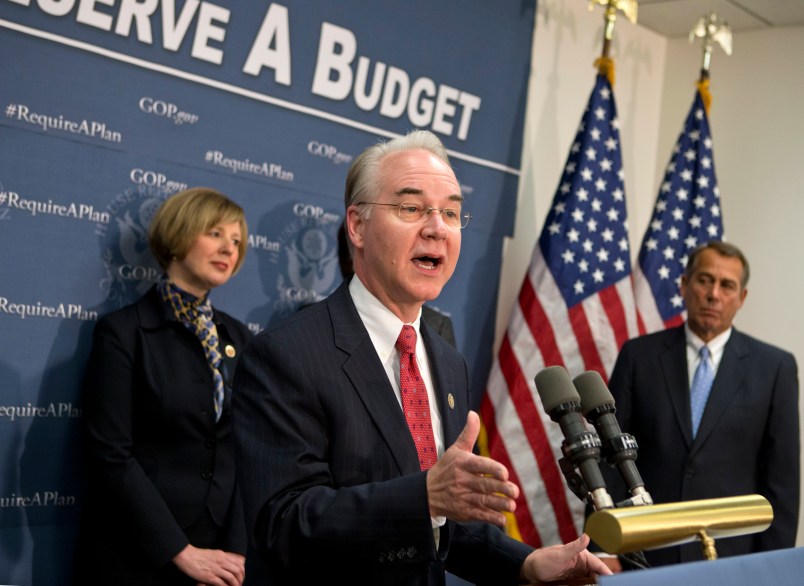WASHINGTON — The Republican-led House of Representatives passed a far-reaching budget blueprint for the fifth consecutive year that partially privatizes Medicare.
The budget was approved Wednesday by a vote of 219-208, overcoming Republican defections.
Like previous proposals by Rep. Paul Ryan (R-WI), the new plan by House Budget Chair Tom Price (R-GA) transforms Medicare after 10 years into a market exchange (which bears many similarities to Obamacare) where seniors receive a federal subsidy to buy insurance from a menu of options.
The menu includes private insurance plans and the option of staying in traditional Medicare. Like Ryan’s proposal last year, it does not impose a cap on how much Medicare is allowed to spend per beneficiary, a GOP budget aide said. It is a response to criticism that the “premium support” structure could lead to high out-of-pocket costs that make coverage unaffordable for seniors.
The rest of the non-binding budget blueprint includes features similar to Ryan’s previous budgets: across-the-board tax cuts, massive cuts to domestic programs, higher military spending (inflated by using an “overseas contingency fund” reserve to placate defense hawks), and a repeal of Obamacare. Notably, the budget avoids proposing any politically perilous benefit cuts to Medicare and Social Security in the next 10 years.
There are two other significant changes: It affirms a House rule adopted in January that could force a showdown over Social Security next year. And it does not set tax rates, but instead making a vague call for “comprehensive tax reform” that includes lower rates and fewer “special interest loopholes.”
In order to stave of a humiliating defeat by their own defectors, House GOP leaders brought up the budget under the obscure “queen of the hill” rule, in which multiple budgets by both parties get a vote and the one with the highest tally wins.







Parliamentary judo is a sure indicator that the budget is bullshit. It can’t stand scrutiny so scrutiny is waived. This is how the GOP leads.
has anyone calculated the cost for committees etc to present this same plan for five years in a row? If you add the cost to vote numerous times to repeal the ACA what does it come to? and finally has the CBO rated this last budget plan? What will it add to the deficit?
Really? This “rule” really exists and not just in first grade recess??
Albert Einstein ‘Insanity: doing the same thing over and over again and expecting different results’
Has this “rule” existed a long time? This is the first time I remember ever reading about it.